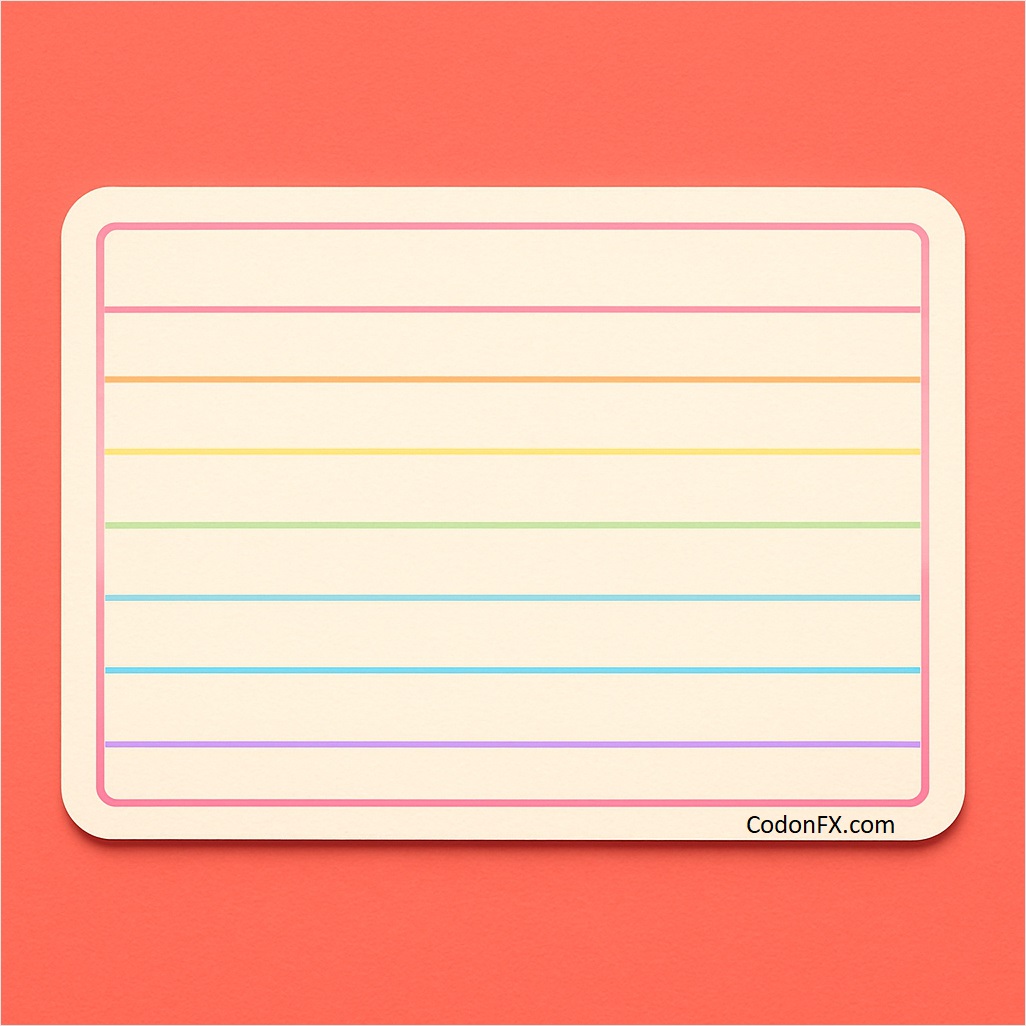Note cards are simple tools that can greatly impact your ability to study, conduct research, or stay organized. They provide a concise and organized way to record information, making it easier to break down large amounts of data into manageable pieces. This can help with information retention, review, and synthesis, ultimately enhancing your learning and memory. In this article, we’ll explore the power of note cards and how you can effectively use them in various aspects of your life.
What is a Note Card?
A note card is a small, portable tool used to organize and present information clearly and concisely. Often used for studying, speeches, or research, note cards help break complex topics into manageable pieces.
Whether you’re preparing for a presentation or reviewing for a test, note cards support active recall, boost memory retention, and make it easier to absorb and review key information efficiently.

The Power of Note Cards for Studying
1. Enhancing Memory Retention
Note cards are an effective tool for improving memory retention. By condensing complex information into concise points on note cards, you are creating more accessible pathways for your brain to retrieve that information later. The act of writing and reviewing note cards reinforces your memory of the material, making it easier to recall during exams or presentations.
2. Active Learning and Engagement
Using note cards for studying promotes active learning and engagement with the material. Instead of passively reading through a textbook or notes, the process of creating and reviewing note cards requires active participation. This hands-on approach helps you better understand the material and retain it long-term.
3. Organization and Structure
Note cards provide a structured way to organize and structure information. By breaking down a topic into smaller components on individual note cards, you can easily rearrange them, group related ideas together, or prioritize key points. This organization helps you see the bigger picture and make connections between different concepts.
4. Personalized Learning Experience
One of the advantages of using note cards for studying is the ability to personalize your learning experience. You can customize your note cards with colors, diagrams, mnemonics, or other visual aids that work best for you. This personalization not only makes studying more enjoyable but also enhances your understanding and retention of the material.
5. Improving Focus and Concentration
When studying with note cards, you are forced to focus on one piece of information at a time. This focused approach helps improve your concentration and prevents distractions. By tackling small chunks of information on each note card, you can stay engaged and retain more knowledge compared to trying to study everything at once.
6. Enhancing Problem-Solving Skills
Note cards can also help improve your problem-solving skills. By breaking down complex problems or concepts into smaller components on note cards, you can analyze them more effectively and identify solutions. The process of creating note cards forces you to think critically about the material and develop a deeper understanding of the subject matter.
Who Needs Note Cards?
- Students: Note cards are essential for students who need to memorize large amounts of information for exams. They can help break down complex concepts into manageable chunks for easier studying.
- Researchers: Researchers can use note cards to organize data, jot down key findings, and connect different pieces of information. This can streamline the research process and make it easier to synthesize data.
- Professionals: Professionals can use note cards to prepare for presentations, speeches, or meetings. By jotting down key points, statistics, or talking points on note cards, they can stay organized and focused during their presentation.
- Teachers: Teachers can use note cards to create flashcards for students, organize lesson plans, or jot down important reminders. Note cards can help teachers stay organized and effectively communicate information to their students.
- Business Owners: Business owners can use note cards to brainstorm ideas, create to-do lists, or plan out projects. Note cards can help keep track of important tasks and deadlines in a structured and organized manner.
- Creatives: Creatives such as writers, artists, or designers can use note cards for brainstorming, outlining projects, or capturing inspiration. Note cards provide a flexible and visual way to organize ideas and concepts.
6 Ways to Effectively Use Note Cards During a Presentation
- Use Bullet Points, Not Full Sentences. Keep only key phrases or keywords on each card to trigger your memory and keep your delivery natural.
- Number Your Cards. Number each card to avoid confusion if they get out of order during your presentation.
- Highlight Key Words. Use colors or bold text to emphasize critical terms or transitions, making them easier to spot at a glance.
- Keep One Idea Per Card. Limit each card to one main point or topic to stay organized and focused throughout your presentation.
- Practice with the Cards. Rehearse using the note cards so you’re comfortable glancing at them without breaking eye contact with your audience.
- Use Cards as a Safety Net. Don’t read word-for-word. Use the cards as a backup to stay on track if you momentarily lose your train of thought.
Note Card Template
Start using our free note card template today to organize key information, enhance your study sessions, and simplify the way you capture and review important details.
Note Card Template – Download